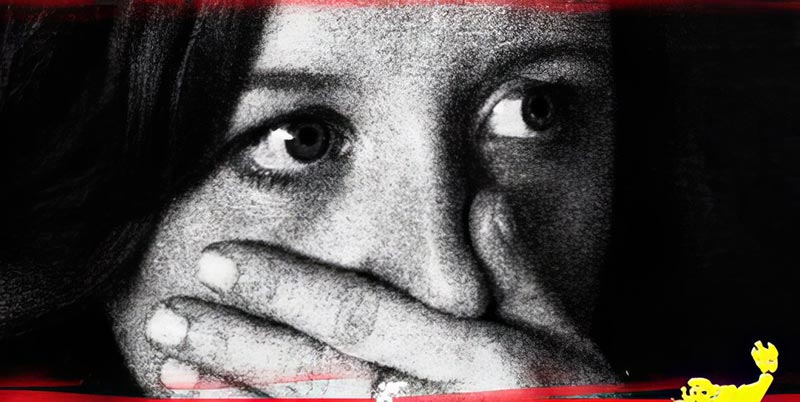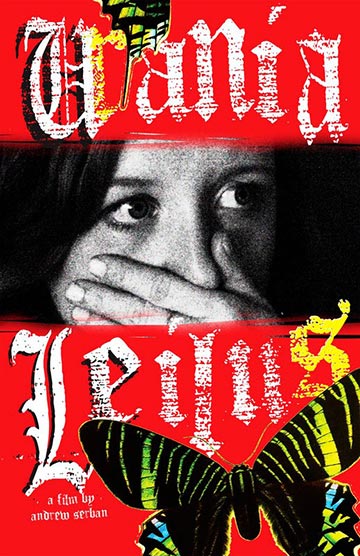
16 Feb Interview with Andrew Serban, 2022 Official Selection winner for Urania Leilus
“After making my film, I believe — more strongly than ever — that the only way our society can survive as a democracy is by fighting to defend the right to free speech.”
When you hear Andrew Serban’s thoughts on free speech, it becomes incredibly evident how he embodies American INSIGHT’s mission to promote Free Speech, Human Rights and the Rule of Law.
 Serban has been deeply impacted by the plight of people who live in countries under authoritarian regimes – both historically and in our present world – and also by seeing what’s happened to immigrant families and their children who were separated after trying to gain asylum in the United States. All of this led him to make Urania Leilus, which was named a 2022 Free Speech Film Festival Official Selection Winner.
Serban has been deeply impacted by the plight of people who live in countries under authoritarian regimes – both historically and in our present world – and also by seeing what’s happened to immigrant families and their children who were separated after trying to gain asylum in the United States. All of this led him to make Urania Leilus, which was named a 2022 Free Speech Film Festival Official Selection Winner.
The fictional film tells the story of a young, female journalist who is subjected to death threats and intimidation after witnessing human rights abuses at an ICE detention center for undocumented immigrant children.
Serban said he felt compelled to make the movie as a warning of what could happen if we don’t “do something to prevent the erosion of basic democratic freedoms.”
“Urania Leilus is intended to be a warning about what might happen when a democracy succumbs to far-right extremists and descends into fascism — when immigrant children are ripped from their parents and locked up in cages without adequate food or medical care; when journalists and dissidents are regarded as “enemies of the people,” to be harassed, intimidated or “disappeared” by unidentified agents in unmarked vehicles — all of which have occurred (and continue to occur) in authoritarian regimes and have recently occurred in the United States,” he said.
After making the film and screening it at several film festivals, Serban realized the best way to advocate for and defend the right to free speech is to speak up yourself.
“I realized how important it is to protect the right to free speech because it suddenly occurred to me that if I didn’t have that right, I wouldn’t have been able to make this film or release it. The story of a journalist who’s subjected to death threats because she witnessed human rights abuses at a government-run detention center is not exactly the kind of story that would pass muster with an authoritarian regime. Making this film has given me a much greater sense of urgency about such issues — especially as it was made at a time when the free press has come under attack as never before — both by those in power and by a large segment of the American public,” he said.
Serban said that if anyone objected to the theme of his movie, he’d question “if they really want to live in a society where people don’t have the right to free speech and where journalists, and even ordinary citizens, can be incarcerated or subjected to violence or death simply for expressing an opinion or telling the truth….to those who say free speech is not worth fighting for, I’d say try living in a full-fledged authoritarian society and see how you like it.”
Although Urania Leilus presents a fictional account of the loss of free speech, Serban said democracy can be undermined and destroyed much easier than people realize. One of the biggest historical examples for him was Adolph Hitler’s rise to power and how many German citizens didn’t realize the power of what was happening until it was too late.
“On being interviewed after the war, many Germans said it was initially very difficult to take a stand against Hitler because the changes he brought about in society occurred so gradually that people were not unduly alarmed, and didn’t think it necessary to engage in active protest or resistance. Of course when war and genocide became a reality, many Germans finally came to realize the horrific nature of the regime, but by that time it was too late to do anything about it, as the regime was simply too powerful,” Serban said.”That’s why it’s essential to have the power of free speech, and for journalists, academics, creatives and others in positions of influence to do their due diligence and report on what those in power are doing. Because free speech has impact, and political leaders know this — it has the power to change hearts and minds and mold public opinion. So, if people realize their rights are being taken away, it’s incumbent on them to do something about it — because they have the power, at least in the early stages of backsliding, to nip the authoritarian virus in the bud before it’s too late.”
Serban knows its not easy and is often very scary for some people to speak out. But, he feels it’s vitally important for those who feel their freedom of speech is being threatened to take a stand against their oppressors in any way that they can.
“There’s always something that someone can do to contribute to a resistance movement — anything from organizing and attending protests to engaging in civil disobedience, disseminating fliers, attending meetings, donating funds, etc. But it’s important that as many people as possible get involved in such activities, as there needs to be a critical mass of the population working together to bring about positive change,” he said.
Although he is now an award-winning filmmaker, Serban’s career began as a writer and photojournalist. “I did not always want to go into filmmaking — although I made my first film in 7th grade. But ever since I can remember I wanted to tell powerful stories — especially about the disadvantaged and oppressed — and express myself artistically and emotionally,” he said.
When Serban, who was born and raised in New York City, graduated college, he thought he would become a writer and was trying to get a novel published. Around the same time, he began photographing various cultural events around New York City and fell in love with the whole process of photography and telling a story through images. He went on to become a freelance photojournalist working on assignment for various publications and wire services, such as The New York Times, Getty Images, Bloomberg News, French magazines Le Nouvel Observateur and Le Point, and many other publications.
After working as a photojournalist for about 15 years, he decided he wanted to to tell a more complete kind of story. He also wanted more freedom to express things how he wanted to versus having to follow the requests of a newspaper or magazine editor. So, he studied film directing at the American Film Institute Conservatory in Los Angeles and entered the world of filmmaking. He has been creating films for nearly 20 years and currently resides in Washington Heights, New York. Serban said filmmaking is a form of self-expression that he finds very powerful.
“I would tell younger filmmakers, as well as my past self, to find the courage to make the films you want to make, to express what you believe and most importantly to tell the truth — and to do it as soon as you can, not put it off,” he said. “Even though making a film is extremely difficult, once you’ve actually made that film, it’s not that difficult to get it out into the world — at least not in the U.S., precisely because we still live in a democratic society that values free speech. But there are those who want to take away our right to free speech, so now is the time to make that film and express oneself openly — not only because you have the right to do so, but because you also have an obligation to exercise that right, especially at a time when free speech is under such dire threat.”
Currently, Serban is working on two other projects that deal with free speech and human rights. One focuses on the same journalist character from Urania Leilus and could be viewed as a companion piece to that film and the other is about a young, middle-class woman who unexpectedly descends into homelessness. Although they are fictional films, Serban said it’s important for him to depict issues and events he sees happening in real life.
“In general, I want to make films and tell stories about real people experiencing real issues — contemporary issues, such as resurgent fascism, the effects of global warming, the collapse of the middle class, etc., as I think it’s important to shed light on such issues because they have such a potential negative impact on people’s lives,” he said. “And I believe that if you’re going to tell these kinds of stories, you have to inspire viewers to experience something on a visceral level, to make them really feel what the main characters are feeling, as that’s the only way to motivate people to change their mindset.”
Given the subject of Urania Leilus, Serban knew the Free Speech Film Festival was a fitting festival to enter but, more than awards, he really wanted to give his film a place to inspire people and he encourages other filmmakers to do the same.
“I was hoping that at least a few festival-goers who managed to see my film might be inspired to take action and do what they can to preserve the right to free speech,” he said. “I’d encourage serious filmmakers to make films about free speech or the threat to free speech and submit those films to the Free Speech Film Festival as well as other public-spirited film festivals, because these are events that strive to create a community of socially aware, creative people who seek a better world. The world of today is beset by many issues, and we need creative people coming together to address these issues — and, hopefully, suggest solutions.”
—
Featured Image Source: Andrew Serban


Edmar Flores
Posted at 00:38h, 24 FebruaryOutstanding Andrew!
Rickart
Posted at 17:00h, 11 AugustCannes et Tribeca!
Soon!